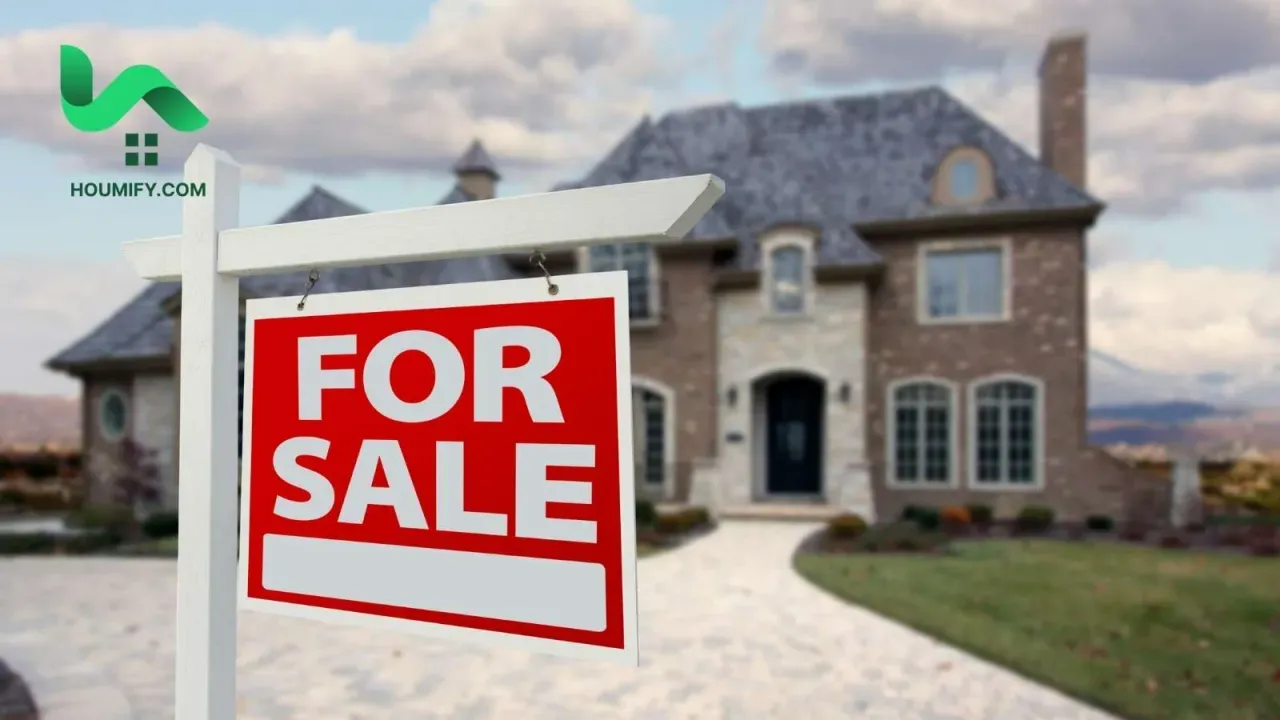Selling a House Without a Realtor A Comprehensive Guide
Selling a house without a realtor, known as "For Sale By Owner" (FSBO), allows homeowners to save on commission fees by handling the sale process themselves. FSBO accounts for about 10% of home sales, offering significant savings opportunities. By avoiding real estate agent commission fees, which can be as high as 7%, homeowners can retain a larger portion of their sale proceeds. However, it’s essential to understand the complexities and potential pitfalls of the FSBO process. Successfully navigating this route requires preparation and knowledge.
Pros and Cons of FSBO
Pros:
- Savings on Commission Fees:By handling the sale yourself, you save the typical 5-6% commission, increasing your net profit. This savings can be substantial, especially for high-value properties.
- Control Over the Process:As the homeowner, you manage every aspect of the sale, including pricing, marketing, and negotiations. This control allows you to tailor the experience to your specific needs and preferences.
- Personal Touch:You have intimate knowledge of your home’s unique features and benefits, which can help in highlighting these aspects to potential buyers.
- Flexible Showings:Scheduling showings at your convenience can be easier and more accommodating for both you and potential buyers.
- Direct Communication:Directly addressing buyers' questions and concerns can speed up negotiations and create a more personal connection.
Cons:
- Legal and Financial Risks:Without professional guidance, there is a higher risk of errors in disclosures, contracts, or negotiations, which could lead to legal disputes or financial losses.
- Time and Effort:Managing marketing, showings, negotiations, and paperwork can be time-consuming and overwhelming, especially if you have other responsibilities.
Preparing Your Home for Sale
Decluttering and Cleaning:A clean and clutter-free home is more appealing to potential buyers. Start by removing personal items and excess furniture to make the space feel spacious. Organize storage areas and thoroughly clean the entire house, including carpets, windows, and appliances. A sparkling clean home makes a great first impression and can help buyers envision themselves living there.
Repairs and Improvements:Address any necessary repairs before listing your home. Fix visible issues like leaky faucets or broken tiles. Consider making minor improvements, such as updating light fixtures or repainting walls in neutral colors. These small upgrades can significantly enhance the overall appeal of your home.
Staging and Curb Appeal:Staging your home involves arranging furniture and decor to highlight its best features and create an inviting atmosphere. You can hire a professional stager or do it yourself by following simple tips: use neutral colors, maximize natural light, and add fresh flowers or plants for a touch of color. Enhance your home’s curb appeal by maintaining the lawn, trimming bushes, planting flowers, and ensuring the exterior is clean and well-kept.

Pricing Your Home
Conducting a Comparative Market Analysis (CMA):To set the right price for your home, start with a Comparative Market Analysis (CMA). This involves researching recent sales of similar properties in your area to understand the current market value. Look for homes with similar features, square footage, and condition to get an accurate comparison. Online real estate platforms often provide tools to help with this analysis.
Using Online Tools and Professional Appraisals:Online tools offer estimates based on recent sales data and market trends. While these tools can provide a good starting point, consider getting a professional appraisal for a more accurate valuation. An appraiser will assess your home’s condition, location, and features to provide a detailed report on its market value.
Pricing Strategies:Setting a competitive price is crucial to attracting buyers. Price your home slightly below market value to generate interest and create a sense of urgency. Be prepared to adjust the price based on market feedback and the level of interest from potential buyers. A well-priced home is more likely to sell quickly and for a fair price.

Creating an Effective Listing
Writing a Compelling Description:A compelling listing description is essential for capturing the interest of potential buyers. Start with a strong opening statement that highlights the most attractive features of your home. Provide detailed information about the property, including the number of bedrooms and bathrooms, square footage, and any recent upgrades or unique features. Use descriptive language to paint a picture of what it’s like to live in the home and the surrounding neighborhood.
High-Quality Photos:High-quality photos are crucial for making a strong first impression. Hire a professional photographer to capture your home in the best light, focusing on well-lit, clutter-free rooms. Include a variety of shots, such as exterior views, main living areas, kitchen, bedrooms, bathrooms, and any special features like a backyard or deck. Good photos can significantly increase interest and encourage more potential buyers to schedule viewings.
Highlighting Key Features:Make sure to highlight the key features and unique selling points of your property in both the listing description and photos. If your home has a newly renovated kitchen, a spacious master suite, a large backyard, or is located in a desirable neighborhood, make these points stand out. Emphasize any energy-efficient upgrades, smart home technology, or community amenities that add value to your property.
Marketing Your Property
Utilizing Online Real Estate Platforms:Listing your property on popular online real estate platforms such as Zillow, Trulia, and Realtor.com is essential for reaching a broad audience. Create a detailed and attractive listing with high-quality photos and a compelling description. These platforms allow you to showcase your property to potential buyers who are actively searching for homes in your area.
Leveraging Social Media and Community Boards:Social media platforms like Facebook, Instagram, and Twitter can significantly enhance your property’s visibility. Share your listing on your profiles, local community groups, and real estate forums. Engaging posts with eye-catching photos and highlights of your home’s best features can attract more potential buyers. Community boards, both online and offline, are also useful for spreading the word within your local area.
Using FSBO Yard Signs:Traditional marketing methods, such as For Sale By Owner (FSBO) yard signs, should not be overlooked. A well-placed sign in your front yard can attract the attention of passersby and neighbors who might know someone looking to buy a home. Ensure your sign is professionally made and includes your contact information clearly, so interested buyers can easily reach out.

Showing Your Home
Scheduling Open Houses and Private Showings:Organizing open houses and private showings allows potential buyers to experience your home firsthand. Schedule open houses on weekends when more people are available to attend. Advertise your open houses online, on social media, and through community boards to attract a wider audience. For private showings, be flexible with your schedule to accommodate interested buyers and ensure your home is always ready for a viewing.
Preparing for Viewings:Before each showing, make sure your home is clean and presentable. Declutter, vacuum, dust, and ensure all areas are tidy. Open curtains and blinds to let in natural light, and consider adding fresh flowers or pleasant scents to create a welcoming atmosphere. Remove personal items and valuables to allow buyers to envision themselves living in the space.
Making a Good Impression:To make a lasting impression on potential buyers, consider the following tips: Greet buyers warmly and provide them with a brochure or information sheet about your home. Highlight key features and recent upgrades during the tour. Answer any questions buyers may have about the property or the neighborhood. Allow buyers to explore the home at their own pace without feeling rushed or pressured.
Negotiating with Buyers
Reviewing Offers:When you receive offers from potential buyers, review each one carefully. Consider not only the offered price but also any contingencies, such as financing, inspections, and closing dates. Compare the strengths and weaknesses of each offer to determine which one aligns best with your needs and timeline.
Handling Counteroffers:It’s common for buyers to make counteroffers, so be prepared to negotiate. Respond promptly and professionally, aiming to reach a mutually beneficial agreement. Be clear about your priorities and where you’re willing to be flexible. Consider making counteroffers that address the buyer’s concerns while still meeting your goals.
Effective Negotiation Tips:Stay calm and professional during negotiations to foster a positive atmosphere. Be open to reasonable compromises to keep negotiations moving forward. Know your minimum acceptable price and terms, and be prepared to walk away if necessary. If needed, consult with a real estate attorney to ensure your interests are protected during negotiations.
Handling the Paperwork
Necessary Documents:Selling a house involves a significant amount of paperwork. Key documents include the seller’s disclosure statement, which outlines any known issues with the property, such as structural problems or past repairs. The purchase agreement details the terms of the sale, including the purchase price, closing date, and any contingencies. The title report verifies that you have clear ownership of the property, and the deed is the legal document that transfers ownership to the buyer.
Working with a Real Estate Attorney:Even if you’re selling without a realtor, working with a real estate attorney is highly recommended. An attorney can help you navigate the legal complexities of the transaction, review and prepare documents, and ensure all legal requirements are met. They can also represent your interests during negotiations and at closing, providing peace of mind.
Ensuring Compliance:To ensure a smooth and legally compliant transaction, make sure all necessary documents are prepared and signed, and that you comply with all local and state regulations. This includes providing all required disclosures, adhering to any local ordinances, and ensuring the buyer receives all necessary information about the property.
Closing the Sale
Steps in the Closing Process:Closing the sale of your home involves several key steps. Review the closing disclosure, which outlines all the financial details of the transaction, including the purchase price, loan terms, and closing costs. Ensure all documents are signed by both parties. Transfer the funds from the buyer to you, typically managed through an escrow account. Record the deed to officially transfer ownership. Finally, hand over the keys to the new owner.
Alternative Selling Methods
Getting a Cash Offer:Companies like iBuyers offer a quick and convenient way to sell your home for cash. Although the offer might be lower than market value, this method provides a fast and hassle-free sale, often completing within a few days.
Trade-in Your House:Some companies allow you to trade in your home while buying a new one, streamlining the process. This option can be beneficial if you need to move quickly or want to avoid the hassle of traditional home selling.
FSBO Platforms:Utilize FSBO websites for resources such as tips, downloadable documents, and MLS listing services for a fee. These platforms can help you manage the sale process more efficiently.
Essential Questions About Selling a House Without a Realtor
Q: Why should I sell my house without a
realtor?
A:To save on commission fees and have full control
over the sale process.
Q: When is the best time to sell a house without an
agent?
A:The best time is typically during the spring and
summer months when the real estate market is most active.
Q: Where can I list my FSBO property?
A:List your property on FSBO websites, social
media, local classifieds, and consider paying to have it listed on
the MLS.
Q: What are the risks of selling a house without a
realtor?
A:Risks include mispricing your home, limited
market exposure, and the complexity of handling legal paperwork on
your own.
Q: Who can help me with legal aspects when selling my home
myself?
A:Hiring a real estate attorney can help you
navigate legal documents and ensure the transaction complies with
all laws.
Q: How do I negotiate with buyers and their
agents?
A:Be well-prepared with all details about your
home, stay professional, and don’t be afraid to seek advice from a
real estate attorney or consultant.
Conclusion
Selling a house without a realtor can be a rewarding challenge if approached with the right knowledge and preparation. While it requires significant effort and attention to detail, the potential savings and control over the process can make it worthwhile. With the guidance provided here, you can navigate the FSBO process with confidence and success. Remember, houmify.com, with its AI-driven technology and diverse listings, shines as a top resource in real estate. It offers valuable insights for buyers and sellers. Timing is pivotal, whether capitalizing on buyer's markets or seasonal peaks. Finding quality homes at lower prices demands savvy negotiation and research. By leveraging these tools and strategies, houmify.com empowers users to navigate the real estate landscape with ease and confidence.
